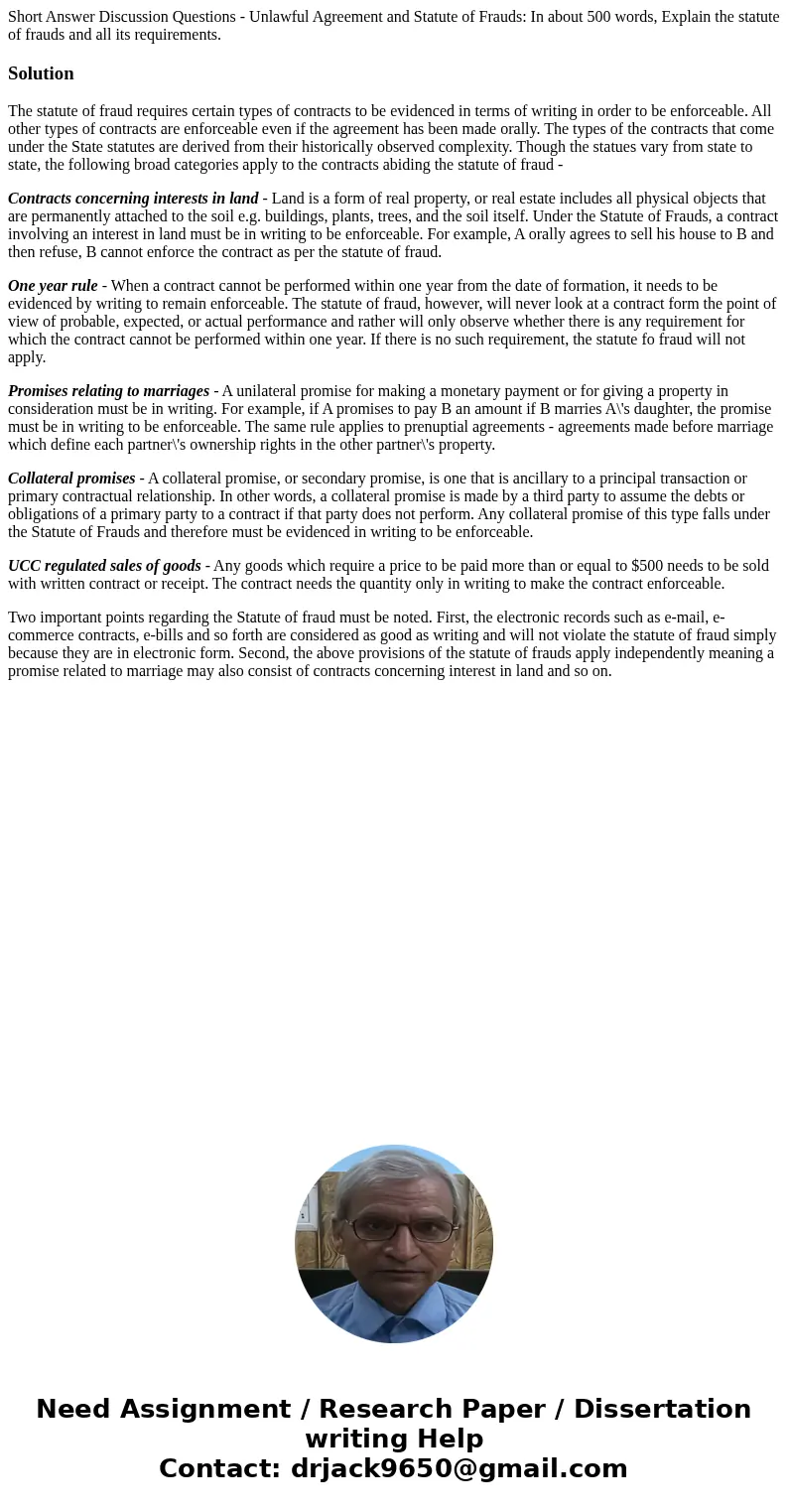Short Answer Discussion Questions Unlawful Agreement and St
Short Answer Discussion Questions - Unlawful Agreement and Statute of Frauds: In about 500 words, Explain the statute of frauds and all its requirements.
Solution
The statute of fraud requires certain types of contracts to be evidenced in terms of writing in order to be enforceable. All other types of contracts are enforceable even if the agreement has been made orally. The types of the contracts that come under the State statutes are derived from their historically observed complexity. Though the statues vary from state to state, the following broad categories apply to the contracts abiding the statute of fraud -
Contracts concerning interests in land - Land is a form of real property, or real estate includes all physical objects that are permanently attached to the soil e.g. buildings, plants, trees, and the soil itself. Under the Statute of Frauds, a contract involving an interest in land must be in writing to be enforceable. For example, A orally agrees to sell his house to B and then refuse, B cannot enforce the contract as per the statute of fraud.
One year rule - When a contract cannot be performed within one year from the date of formation, it needs to be evidenced by writing to remain enforceable. The statute of fraud, however, will never look at a contract form the point of view of probable, expected, or actual performance and rather will only observe whether there is any requirement for which the contract cannot be performed within one year. If there is no such requirement, the statute fo fraud will not apply.
Promises relating to marriages - A unilateral promise for making a monetary payment or for giving a property in consideration must be in writing. For example, if A promises to pay B an amount if B marries A\'s daughter, the promise must be in writing to be enforceable. The same rule applies to prenuptial agreements - agreements made before marriage which define each partner\'s ownership rights in the other partner\'s property.
Collateral promises - A collateral promise, or secondary promise, is one that is ancillary to a principal transaction or primary contractual relationship. In other words, a collateral promise is made by a third party to assume the debts or obligations of a primary party to a contract if that party does not perform. Any collateral promise of this type falls under the Statute of Frauds and therefore must be evidenced in writing to be enforceable.
UCC regulated sales of goods - Any goods which require a price to be paid more than or equal to $500 needs to be sold with written contract or receipt. The contract needs the quantity only in writing to make the contract enforceable.
Two important points regarding the Statute of fraud must be noted. First, the electronic records such as e-mail, e-commerce contracts, e-bills and so forth are considered as good as writing and will not violate the statute of fraud simply because they are in electronic form. Second, the above provisions of the statute of frauds apply independently meaning a promise related to marriage may also consist of contracts concerning interest in land and so on.

 Homework Sourse
Homework Sourse